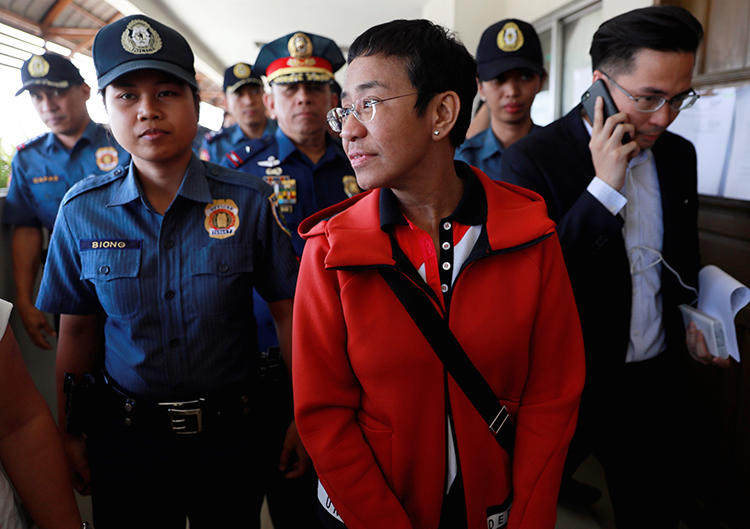Bangkok, July 25, 2019 — Philippine authorities should drop pending cyber libel charges against Rappler editor Maria Ressa and cease their legal harassment campaign against her, the Committee to Protect Journalists said today.
On July 23, a criminal libel trial concerning a 2012 Rappler story began in a Manila court, according to news reports. Ressa, who was arrested and briefly detained on the charges before posting bail, did not attend the hearing; she was not legally required to appear, and was granted permission to leave the country under her bail terms, she told CPJ in an interview in Bangkok.
The next hearings in the trial will begin on July 30, according to news reports. If found guilty under the 2012 Cybercrime Prevention Act, Ressa faces a possible six years in prison, depending on how judges interpret the law, she said.
“The government of Rodrigo Duterte wants to project an image of strength, but this campaign of harassment of Rappler and Maria Ressa betrays its fear of criticism and scrutiny,” said Shawn Crispin, CPJ’s senior Southeast Asia representative. “Authorities should drop all charges against her and accept that a free and independent press is essential to the workings of democracy.”
Ressa told CPJ she believes the complaint is politically motivated to stifle Rappler’s critical reporting on the government. The National Bureau of Investigation had previously closed its investigation into the case because it found no basis to proceed with the complaint, but later reversed that decision to pursue the charge, Rappler reported last year.
Her legal defense has noted that the cyber libel law under which she is being prosecuted was enacted four months after the story in question was published in 2012, The Guardian reported. The charge relates to a 2012 story about businessman Wilfredo Keng and his alleged links to drug and human trafficking operations, news reports said.
“This case of cyber libel stretches the rule of law until it breaks,” Ressa told CPJ. “Ludicrous doesn’t begin to describe how the law has been weaponized today against perceived critics.”
Ressa told CPJ that the Department of Justice extended the liability period for cyber libel cases from one to 12 years specifically so she could be charged under the provision. In addition to the cyber libel complaint, Ressa told CPJ she has faced 11 legal cases and investigations in the past 14 months, a caseload she says has inhibited her ability to report the news and manage Rappler.
The Department of Justice did not immediately respond to CPJ’s emailed request for comment on the case.
In 2018, CPJ honored Ressa with its Gwen Ifill Press Freedom Award at its annual International Press Freedom Award ceremony in recognition of her courage in reporting in the face of persecution.
